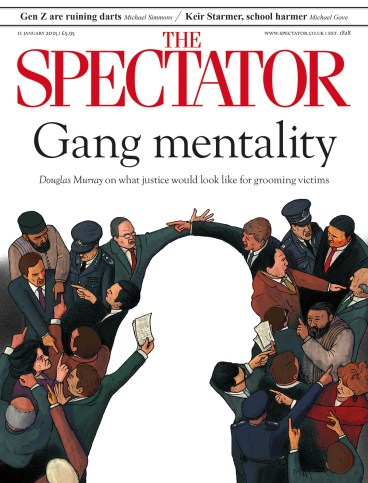
With Christmas only just gone, I hope it’s not too late to recommend Ingvild Rishoi’s bittersweet seasonal novella – a bestseller in Norway which now comes into English in Caroline Waight’s crisp and fluent prose. Here’s a child’s-eye story about adult griefs and troubles which uses dramatic irony to consistent effect; a skinny little narrative halfway to being a fable which nevertheless keeps its roots in reality, with mobile phones, Frosties, casual swearing, the workings of child protection services and the logistics and microeconomics of the Christmas tree business.
The narrator, ten-year-old Ronja, and her teenage sister Melissa are growing up in Oslo with their alcoholic single dad. Things are pretty bleak. The girls put on a brave face, terrified of attracting the attention of social services, with all that will follow. They catch a lucky break when Ronja learns of a job locally selling Christmas trees. Dad gets the job! It’s a Christmas miracle! He comes home with armloads of groceries, full of affection and hope and good cheer.
But then, of course, he falls off the wagon and vanishes to the pub. Melissa saves the day by begging to be allowed to take over his job, and Ronja joins her on the lot – her waiflike mien helping to drum up business selling wreaths in aid of ‘children in need’. Melissa’s colleague Tommy offers a pert critique of ‘Christmas spirit’, a.k.a. ‘rich people desperate to find someone to help’: ‘You know who people most want to help at Christmas? More than anybody else in the world? … Skinny little kids.’ A winter storm, meanwhile, is coming.
So here’s a story that has its cake and eats it. You’re encouraged to pity plucky, innocent little Ronja and her irrepressible doomed capacity for hope; your eyes mist at the little kindnesses she’s shown by others, and at her bond with Melissa, who has had to grow up too fast. But you’re reminded, too, of the literary conventions that accomplish that, and the way the season monetises sentimentality. Christmas trees may make you go ‘Aaah!’, but they’re a business, too. ‘People think Christmas trees are this happy-crappy thing,’ says Melissa after her first day at this ‘shitty job’. ‘But the Christmas industry is full of shitty people. And my mittens are complete shit too, the needles go right through them.’
Rishoi’s poignant novella, told in jagged fragments and easily read in a sitting, takes its bearings more from ‘The Little Match Girl’ than ‘A Christmas Carol’. Indeed, references to the former are threaded pointedly through the story. As the girls fantasise about getting a Christmas tree of their own, Ronja exclaims: ‘Like in “The Little Match Girl”’:
‘Don’t think about that,’ Melissa said. ‘That’s the saddest story ever.’
‘But remember the tree?’ I said. ‘Don’t you remember the tree she’s looking at?’
‘She’s hallucinating,’ Melissa said. ‘Don’t think about that. The girl dies at the end, you know.’
‘She doesn’t die,’ I said. ‘She goes to her grandma.’
Melissa took a breath and shook her head, but then she put her face to mine…
Happy endings, eh? All depends how you’re looking at them.









Comments